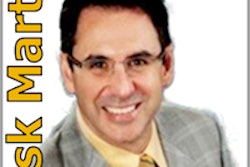A bill in the U.S. House of Representatives would prohibit most dental insurance companies from capping fees for procedures they don't cover throughout the U.S.
The federal bill, introduced April 13 by Rep. Robert A. Andrews (D-NJ), chairman of the Subcommittee on Health, Employment, Labor and Pensions, would restrict several other practices by dental insurance companies as well.
"H.R. 5000 would dramatically level the playing field between dentists and dental benefit plans," the Academy of General Dentistry stated in a news release.
At least eight states have passed laws in the past year to prohibit fee capping, and several others are considering similar legislation.
The Dental Coverage Value and Transparency Act of 2010 would outlaw the practice and several others in insurance plans offered through private employers by amending the Employee Retirement Income Security Act, which governs benefits voluntarily offered by private employers.
Among the bill's other provisions:
- Dentists outside of insurers' networks could get the same reimbursement as those inside the networks.
- If beneficiaries were covered by two or more dental plans, they could collect the maximum reimbursement from each of the plans, up to 100% of the cost of the procedure.
- Insurers could not combine benefit codes in a way that reduces benefits, a practice known as "bundling."
- Insurers could not change benefit codes for a claim to a lower-cost procedure, if doing so is inconsistent with the current dental terminology, a practice known as "downcoding."
- Insurers would have to pay interest if they took more than 30 days to send reimbursement. And they couldn't collect for overpayment more than 90 days after the reimbursement, or deduct the overpayment from another claim.
- Insurers would have to explain more clearly under what circumstances they could lease a network to another insurer.
The bill is currently in the House Committee on Education and Labor.
Copyright © 2010 DrBicuspid.com



















